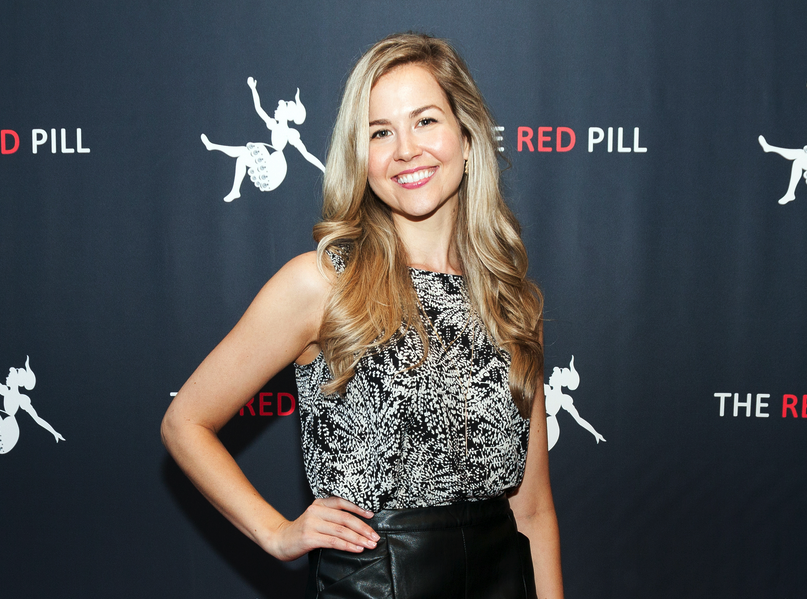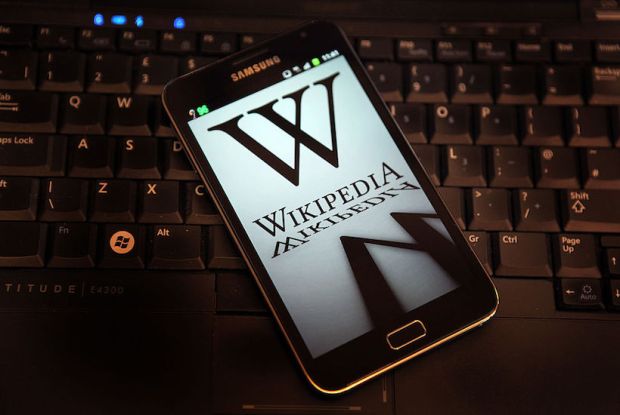 If you believe the outrage among women’s groups, US-born filmmaker Cassie Jaye is not only the world’s most controversial feminist, but the most dangerous as well. A petition has even been started to prevent her entering Australia. This is a treatment more notably applied to the likes of Sheikh Bilal Philips, whom the US government described as an “unindicted co-conspirator” in the 1993 World Trade Centre bombing.
If you believe the outrage among women’s groups, US-born filmmaker Cassie Jaye is not only the world’s most controversial feminist, but the most dangerous as well. A petition has even been started to prevent her entering Australia. This is a treatment more notably applied to the likes of Sheikh Bilal Philips, whom the US government described as an “unindicted co-conspirator” in the 1993 World Trade Centre bombing.
In Jaye’s case there is no suggestion of her wanting to blow up any high rise buildings. Instead, her crime, in the eyes of some, was to produce a documentary film, “The Red Pill” — there’s an extended preview available here — which blows up feminist myths about the Men’s Rights Movement.
Talking with Jaye reveals a very different woman from the vitriol written about her. She is thoughtful, ineluctably charming, and possessed of a fine intellect. This is much more than can be said of most of her detractors, who have accused her of everything from consorting with supremacists to condoning the rape of women.
All this is rather bemusing for a woman who was until recently a darling of feminists everywhere. At just 23 years of age she released her first documentary feature film, Daddy I Do, a vigorous comprehensive sex education that catapulted her to the forefront of the feminist movement.
“It won a lot of awards, and was highly praised,” she tells me.
“It really did focus on women’s issues – women’s rights and sexuality – so that was my kind of world in the film industry, and I focused on women’s issues and was getting a lot of praise for that.”
Similar plaudits followed her next movie The Right to Love: An American Family, which championed the cause of the gay marriage lobby.
To any reasonable observer, she seemed on her way to a safe and comfortable future among the ranks of Hollywood’s liberal left. However, the release of The Red Pill resulted in a maelstrom of hatred from women whose principal denunciation lay in her perceived betrayal of the feminist cause.
“People are saying that I’m an MRA (a men’s rights activist), and that I promote violence against women, which is just the most ridiculous thing. I’ve been working for advocacy for women’s issues for the last ten years. To say I’m anti women’s rights is insane,” she says.
One manifestation of this rage was a petition demanding that Palace Cinemas withdraw the film before it had even been screened. When the petition had gathered just over 2,000 signatures, Palace Cinemas cancelled the screening of the movie, which was to occur this Sunday. Two contrary petitions calling for the screening to be reinstated have gathered three times as many signatures, although Palace is yet to respond.
This is certainly not a situation Jaye would ever have anticipated. She commenced the film a staunch feminist.
Having faith in one’s own intellect to approach a subject with an open mind and eventually arrive at an informed conclusion is an essentially liberal proposition, and one which she brings to her filmmaking.
“I believe I’m one of the last balanced documentary filmmakers right now, because I really do want to see all sides. I’m not a men’s rights activist. After making the film I’m no longer calling myself a feminist, but I haven’t put my flag down on any territory and said this is what I’m standing up for. I’m not promoting any group or trying to propagandise any movement,” she says.
Along the way, Jaye has discovered that her work cannot exist on its own. It is as much a product of the audience and their responses as it is hers.
“In a way I feel all this controversy that’s happening around the film right now is part of the film and the film’s message. I mean, my film is just the pebble dropped into the lake, and all these ripples are a part of that event, and the message.
“You know there’s a lot of room to fill in the blanks with documentary films. You can be offended, you can be inspired, you can be edified and educated, you could have your whole view on the world shaken and rocked, and leave the theatre a different person than when you entered, or have your views even more solidified.”
Perhaps the most endearing of Jaye’s qualities is her courage to be vulnerable in pursuit of the truth.
“My entire three and a half year journey making this film was probably the most real and honest thing I’ve ever created in my career and it’s incredibly raw. I’ve put my own video diaries in the film, and it really is my kind of love letter to the world,” she confesses.
“I really feel this film is the thing I’m most proud of in my entire life, and once people get to see this film, I think all this terrible press is going to look ridiculous.”
Is Cassie Jaye dangerous? Maybe, but only if you are the sort of person for whom genuine intellectual enquiry poses an existential threat.
Sixty years ago, Isaiah Berlin warned about the possibility that democracies, without ceasing to be democratic, could one day suppress freedom as liberal thinkers understood the concept. Cassie Jaye is alive to that threat, and her work represents a stalwart defence of the intellectual honesty on which a genuinely free democracy depends.
We need more of this, not less. The greatest threat to our society lies not with those who are willing to tell the truth, but those who are willing to deny its very existence.
Got something to add? Join the discussion and comment below.
Get 10 issues for just $10
Subscribe to The Spectator Australia today for the next 10 magazine issues, plus full online access, for just $10.

























Comments
Don't miss out
Join the conversation with other Spectator Australia readers. Subscribe to leave a comment.
SUBSCRIBEAlready a subscriber? Log in